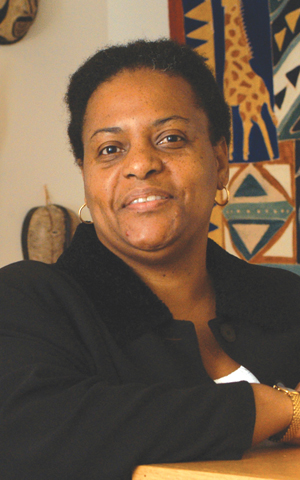An adjudicator with the Human Rights Tribunal of Ontario has refused a request by Legal Aid Ontario to dismiss a long-standing racism complaint by the African Canadian Legal Clinic.

The complaint dates back to a forensic audit by LAO into the clinic’s management in 2003. It alleges the government agency singled the clinic out for special treatment because its employees and clients are predominantly black.
LAO, which is the clinic’s chief funder, argues that because it was merely exercising its mandatory oversight functions, the investigative process didn’t amount to a “service” under s. 1 of the Human Rights Code. But tribunal adjudicator Kaye Joachim disagreed in a recent ruling.
“It appears to me that the LAO provides a service to legal aid clinics when it, among other things, reviews their compliance with the act, issues directions, and investigates allegations of non-compliance,” she wrote in an interim decision on the clinic’s complaint.
“The LAO’s investigatory process, if conducted in a discriminatory manner, could amount to a violation of s. 1.”
In a separate interim ruling last month, Joachim also declined to remove two LAO executives from the proceedings.
The audit began in April 2003 after a former employee went to LAO with concerns about financial and administrative mismanagement at the clinic. In October that year, audit results delivered to the clinic by LAO concluded many of the allegations were substantiated.
Although it made no allegations of fraud, the agency found the clinic had failed to report more than $400,000 in funding from sources other than LAO, including about $50,000 in “double funding” for identical projects from the now-defunct federal court challenges program.
Some of the excess funds appeared “to have been utilized by the clinic to travel extensively to attend numerous conferences, as well as to host its own conferences,” the audit report stated.
It also found client numbers were artificially inflated and that membership records were manipulated in order to influence the composition of the clinic’s board.
“This calls into question the financial management of the clinic and the board’s ability to be accountable for the financial management of the clinic,” the report concluded.
In response, the clinic claimed the inflated client numbers were the result of administrative errors and that, while many other agencies had improperly reported their extra funding, LAO had enforced the rules inconsistently.
Margaret Parsons, executive director of the clinic, publicly accused LAO of engaging in racial profiling and presuming guilt in its pursuit of its management following the release of the forensic audit.
“It is anti-black racism in its purest form. . . . Sometimes I feel like we’re in 1950s Alabama, the way they treat us,” she told the Toronto Star at the time.
Subsequently, the clinic made the racism allegations official by filing a human rights complaint against LAO, a matter that remains ongoing.
The action also named Angela Longo, president of LAO at the time, and Sue McCaffrey, then its vice president of clinics and special services, for publicly characterizing the clinic in what it saw as a negative light. None of the racism allegations have been proven before the tribunal.
The complaint alleges LAO’s audit of the clinic was aggressive compared with other agencies and saddled it with a higher standard of accountability.
It also claims executive directors are usually involved in audits but says LAO excluded Parsons for most of the investigation. LAO stopped the clinic’s direct deposit, which it said had never happened to other agencies.
The claim detailed further instances of alleged discrimination by LAO and its predecessor agency dating back as far as 1993.
The complaint said the previous agency had failed to support the initial formation of the clinic and made inappropriate inquiries into the background of three members of its steering committee.
It also claimed Parsons was paid less than her counterparts at other agencies between 1997 and 2001 and that the clinic experienced extreme delays in having phone calls returned from LAO staff.
Nevertheless, in an interim decision released last month, Joachim narrowed the scope of the complaint to the audit process because more than 12 months had passed between most of the allegations and the complaint.
“I am not satisfied that the applicant has established any basis for the delay in raising the historical allegations,” she wrote.
At the same time, LAO attempted to have Longo and McCaffrey removed from the proceedings. But in the June decision, Joachim ruled against it.
“These allegations, if established, could give rise to a remedy against the personal respondents. In these circumstances, I do not find that it would [be] appropriate to remove the personal respondents from these proceedings.”
Longo is currently on sick leave from her job as Ontario’s deputy minister of health promotion and was unavailable for comment. LAO, where McCaffrey still works as vice president and general counsel, declined interview requests on the case.
“Since this matter is currently before the tribunal, it would not be appropriate for us to comment at this time,” Peter Boisseau, a spokesman for the agency, said in a statement.
Parsons couldn’t be reached for comment by press time.
Both parties have expressed an interest in mediation, according to Joachim’s ruling last month.

 The complaint dates back to a forensic audit by LAO into the clinic’s management in 2003. It alleges the government agency singled the clinic out for special treatment because its employees and clients are predominantly black.
The complaint dates back to a forensic audit by LAO into the clinic’s management in 2003. It alleges the government agency singled the clinic out for special treatment because its employees and clients are predominantly black.